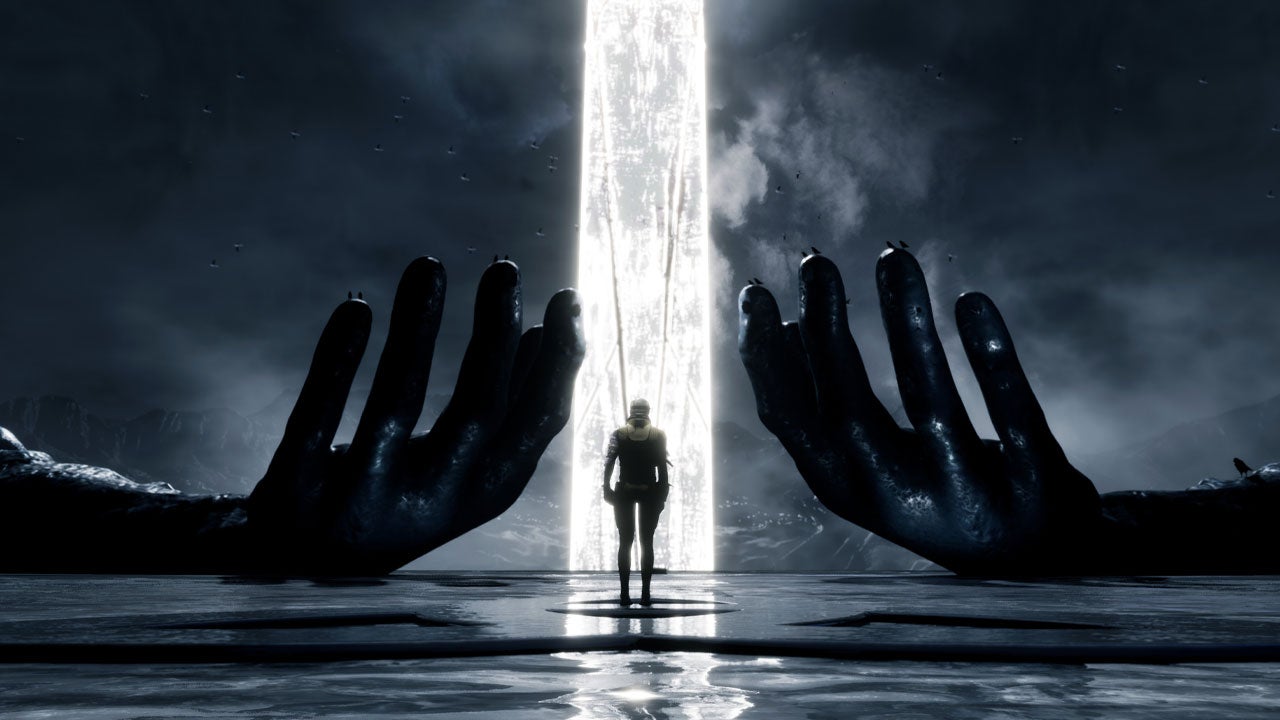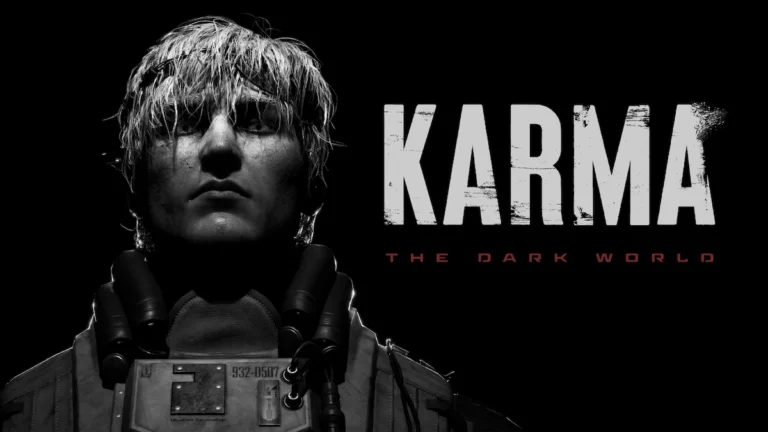If you’ve read George Orwell’s Animal Farm, you probably know his even more famous book 1984 — a terrifying look into a totalitarian world where the state watches everything. This idea of a dystopia has been explored in many science fiction stories, and video games like BioShock have brought these bleak worlds to life in unique ways.
Now, a new Chinese indie game called Karma: The Dark World, developed by a small studio with just 19 people, attempts to carry this torch. Deeply inspired by Orwell’s 1984, the game blends horror, psychology, and mystery to tell a disturbing and personal story.
Setting the Scene: East Germany, 1984
The game takes place in a parallel world, in East Germany during the year 1984. Following a series of violent conflicts, a totalitarian government known as Leviathan has risen to power. This regime has created a strict class-based system and monitors every aspect of life in the name of “security.”
You play as Daniel McGovern, a high-ranking Leviathan agent. Daniel is assigned to investigate a deeply complex case, but the story begins with him waking up in a hospital — confused and disoriented. He doesn’t recognize the face in the mirror. The hospital is filled with abandoned bodies, and a mysterious man tells Daniel he’s lost his memory during strange experiments. To uncover the truth, Daniel must dive into his own past and recover the steps that brought him to this terrifying present.
A World of Control: MOTHER and Leviathan

Like in 1984, the government in this game has eyes everywhere — but instead of Big Brother, we meet MOTHER. All Leviathan agents obey her without question. Disobedience is not tolerated. Yet these agents have complete freedom to access and read the memories of suspects using advanced mind-scanning technology. The symbol of a wide-open eye appears often — a clear reference to Orwell’s theme of total surveillance and control.
Psychological Depth and Narrative Richness
The story doesn’t just borrow from Orwell — it also leans heavily on psychological horror. Karma tries to deliver the same message as 1984, but in a more emotional and personal way. As you follow Daniel, the story dives into themes of trauma, identity, and control. The narrative pacing is well-managed at the beginning, introducing mystery after mystery to pull you in.
There are also many side characters, each with unique subplots. Some of these characters are even playable in certain sections, giving you multiple perspectives. This variety helps create a deeper, more engaging experience.
Three Acts, Three Styles
The game is split into three chapters, each with a different tone:
- Chapter One: A psychological detective thriller. This section is excellent, with a steady rhythm and well-designed puzzles. It emphasizes investigation, puzzle-solving, and world-building.
- Chapter Two: A social horror story. This chapter adds elements of fear and discomfort as you explore the world further. It also starts shifting away from detective work.
- Chapter Three: A personal and emotional drama. Unfortunately, this chapter feels rushed. While some new and important characters appear, they are not developed well, and the story doesn’t quite land with the same impact.
While the first chapter stands out as the strongest, the rest of the game struggles a bit to maintain the same level of storytelling.
Environmental Storytelling and Surrealism
One of the game’s major strengths is its environmental storytelling. Much of the world design feels surreal and haunting. One standout area is directly inspired by the TV show Twin Peaks, and it’s easily one of the most memorable parts of the game. This sequence blends horror, mystery, and dreamlike visuals in a way that’s both unsettling and beautiful.
Another creative moment comes later in the game with a romantic subplot, presented in a deeply artistic and surreal way. It evokes the mood of David Lynch’s work — strange, emotional, and visually powerful.
Gameplay: Simple but Effective
Karma: The Dark World is mainly a narrative-driven adventure game. It doesn’t try to reinvent the wheel. Most of the gameplay revolves around exploration, reading notes, and solving light puzzles. These puzzles are often integrated into the story and the environment, and while most are simple, they’re effective.
Midway through the game, you gain access to a camera, which reveals hidden eyes. These are the keys to entering new areas and also help you defeat bosses. It’s a clever mechanic, even if underused.
There are also collectible dolls that contain puzzles. However, these puzzles give you only one chance to solve them. If you pick the wrong answer, that’s it — no second tries. This system feels unnecessarily harsh.
A Walking Simulator by the End?
As the game nears its conclusion, the amount of gameplay significantly drops. It feels more like a walking simulator, where you simply walk through the story instead of interacting with it. For some, this won’t be a problem — but others may find it too passive.
Technical Issues and Polish
Technically, the game has a long list of problems. According to the developers, a patch is planned for launch day to fix them. But during my playthrough, I ran into crashes during loading screens, audio bugs, and jumpy cutscene transitions. These issues were frequent enough to break immersion.
That said, the game runs on Unreal Engine 5 and, overall, looks very good. The lighting, detail, and variety of environments — from grim cities to bloody labs and dreamlike hallways — are impressive for such a small studio. Some effects, like water movement, still need work and feel out of place in such a visually rich world.
Voice Acting and Character Presence
The voice acting is a mixed bag. Some characters sound believable, but others — including Daniel — come across as flat. This makes it harder for players to connect emotionally, and in a story-driven game, that’s a noticeable flaw.
Final Verdict: Worth a Try
For its first game, Pollard Studio has done a commendable job. Karma: The Dark World has a strong concept, a haunting atmosphere, and moments of real creativity — especially in its storytelling and environments. While the game loses momentum in the later chapters and suffers from some technical and narrative missteps, it still manages to leave an impact.
If you’re a fan of psychological horror, dystopian fiction, or games inspired by Orwell, this is absolutely worth checking out — even if only once.
